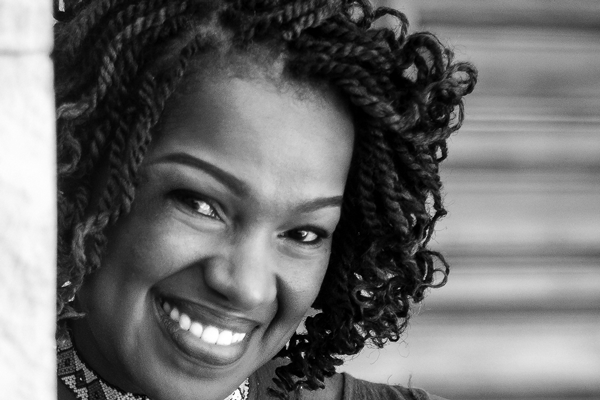
One of the quickest ways to get rich is to participate in the process of commercialising help.
Opinion: Thembe Khumalo
They say that the self-help industry helps itself to billions of dollars every year.
And a quick trip into any bookstore seems to confirm this assertion.
The shelves are laden with volumes of advice, exercises, ideas and provocations claiming to help you fix yourself in all the places where you may be broken.
Not all of life’s seasons are the same.
And when we find ourselves in a season we don’t like, it’s a natural response to want to push back, to rail against it and wish it would go away.
But it’s not going away.
- Chamisa under fire over US$120K donation
- Mavhunga puts DeMbare into Chibuku quarterfinals
- Pension funds bet on Cabora Bassa oilfields
- Councils defy govt fire tender directive
Keep Reading
Especially not until you have uncovered whatever that season is bringing you.
When you have learnt the lesson, or caught a glimpse of the glory or begun to climb the mountain, then perhaps the season will change.
When bad things happen, we should simply chalk them down to experience, figure out what lesson has been learnt and turn over a new leaf with a stronger and wiser mindset.
It’s clear that such a course of action is good and desirable, but in practice, very difficult to implement. When bad things happen, our usual train of thought is to ask why.
This is particularly true for those who believe in God or a higher being.
We rant and rave and challenge God to undo what he has done, and if he won’t, then we require him to at least explain why he has done it.
But if your God is like my God, you will most likely find him silent.
He will observe from afar and wait quietly, while you figure it all out for yourself.
I imagine it’s much like watching a four-year-old tying a shoe lace — you really want to help, and you know things will move much faster with your intervention, but you dare not rob your beloved little one of the opportunity to try and try and try again until he has mastered this skill.
Because when you love someone, the temptation to safeguard them from any pain is very strong.
But the goal of allowing that experience to make them wiser, stronger and altogether better, should be more powerful still.
I imagine God must have a hell of time watching us go through this process many times over in the course of a lifetime.
I wouldn’t want to be in his shoes — laces or no laces!
Now here’s the thing — if you fail to learn the lesson that is hidden in a negative experience, there are some unpleasant consequences.
The first problem is that you will continue to ask the “Why” question.
The self-help books are only a small portion of the helping industry: there are also faith-based solutions, mystical offerings, ethnic and cultural processes, spiritual conspiracy theories and so much more.
All these are poised to service your need to know why, and that should tell you that whatever help you think you will get is coming at a cost to you.
Whether you engage a mupostori, a traditional healer or a fortune teller, you are unlikely to find a satisfactory answer to that question, and you might instead find yourself at odds with certain relatives, friends or neighbours after being told that their spells or potions are the cause of your bad experience.
Another consequence is that you do not get the refreshing enlightenment that an “Aha” moment gives you.
When you identify a learning point in an experience, you can come to a place of resolution, where you can begin to move forward with renewed commitment and perhaps even confidence — you are, after all wiser than when you first set out.
One of the finest teachings I have heard on this subject was from a pastor, who suggested that instead of asking God questions that start with “Why”, one should rather ask questions that start with “What” — “What do you want me to do now?” “What is the direction I should move in from here?” “What can I change or improve in me to ensure a better outcome next time?” “What?” “What?” “What?”
Of course, lessons don’t only come packaged as bad encounters.
Sometimes they come packaged as close shaves, or even as perfectly good outcomes.
Sometimes we rail over a bad experience because we think of ourselves as good people and we wonder why those we think of as “bad” seem to sail on and through with little heartache, while we, who are supposedly good, are struggling.
“Why do bad things happen to good people?”.
My own proposition is that most of us are both good and bad, and we cannot wish a bad experience on anyone just because of our perceptions.
One of the more painful scriptures (and there are many!) that I have encountered in the Bible comes from Ecclesiastes (9:11) and says: “I realised another thing, that in this world, fast runners do not always win the race, and the brave do not always win the battles. The wise do not always earn a living, intelligent people do not always get rich, and capable people do not always rise to high positions. Bad luck happens to everyone.”
Whether you are fast, or slow, if you have not won the race, there is bound to be a lesson in there for you somewhere — a lesson about running, a lesson about this particular race, or perhaps even a lesson about yourself.
Thembe Khumalo is a brand-builder, storyteller and social entrepreneur. Find out more on www.thembekhumalo.com or follow her social media accounts @thembekhumalo











